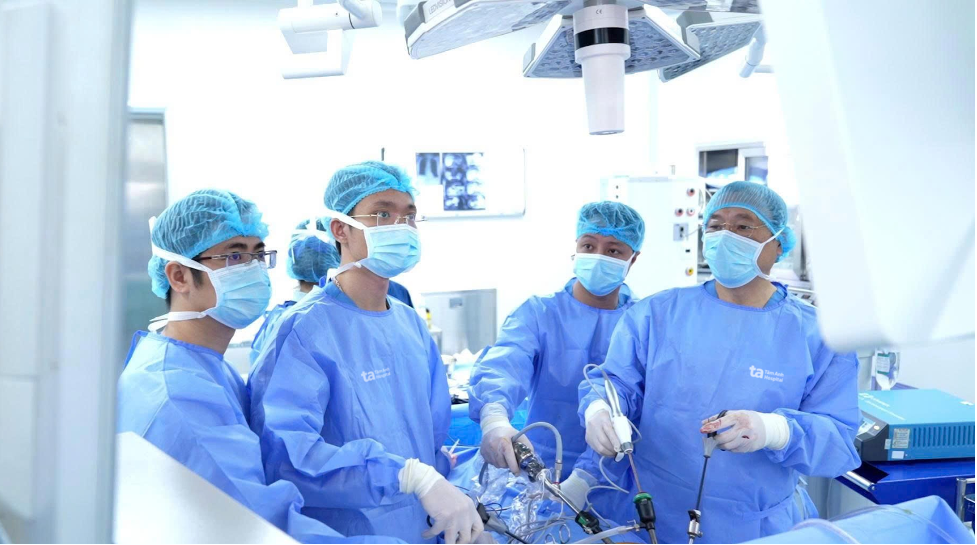Answer:
Stomach cancer is a common type of gastrointestinal cancer. According to 2022 Globocan statistics, stomach cancer is the 5th most common cancer and the 3rd leading cause of cancer deaths in Vietnam.
Surgery plays a crucial role in treating stomach cancer. It is recommended in several cases: when the cancer is localized and hasn't spread distantly; when the tumor is deemed completely removable; and when the patient is healthy enough to undergo major surgery. In some advanced stomach cancer cases, surgery helps relieve obstructions or bleeding caused by the tumor.
The decision to perform surgery depends on the stage of the cancer, the location of the tumor, the patient's overall health, and their responsiveness to treatment. Therefore, a specialist must examine and assess your condition before recommending a treatment plan.
Stomach cancer surgery is a complex procedure, especially for older patients with underlying health conditions. Potential complications include anastomotic leaks, internal bleeding, infection, dumping syndrome, and postoperative pneumonia. However, with advancements in modern medicine, the success rate of stomach cancer surgery has improved, especially when combined with multi-modal treatment (surgery, chemotherapy, and radiotherapy when necessary), reducing the risk of complications.
 |
A doctor performs stomach cancer surgery. Photo: Tam Anh General Hospital |
Before surgery, stomach cancer patients need comprehensive diagnostic tests, including endoscopy, CT scans, biopsies, and blood tests. Concurrently, patients should maintain a nutritious diet and healthy sleep patterns to boost their immune systems. After surgery, patients need close monitoring of vital signs and complications at the hospital for the first 7-10 days.
Patients should prioritize a liquid, easily digestible diet during the initial weeks, then gradually increase the amount and variety of food as directed by their doctor. Regular follow-up appointments are crucial to monitor recovery and detect any recurrence early. Some patients may require adjuvant chemotherapy after surgery.
To prevent stomach cancer, maintain a healthy diet rich in fresh fruits and vegetables, especially citrus fruits like oranges, lemons, and grapefruits. These provide antioxidants, vitamin C, vitamin E, and beta-carotene, which protect the stomach lining. Avoid salty and processed foods, as they can irritate the stomach lining and increase the risk of ulcers.
Those with HP bacteria infections or stomach ulcers should receive complete treatment and manage the risk of recurrence. Minimize alcohol consumption and avoid smoking, as these are significant risk factors for stomach cancer.
Hoai Pham
| Readers can submit questions about cancer here for doctors to answer. |












